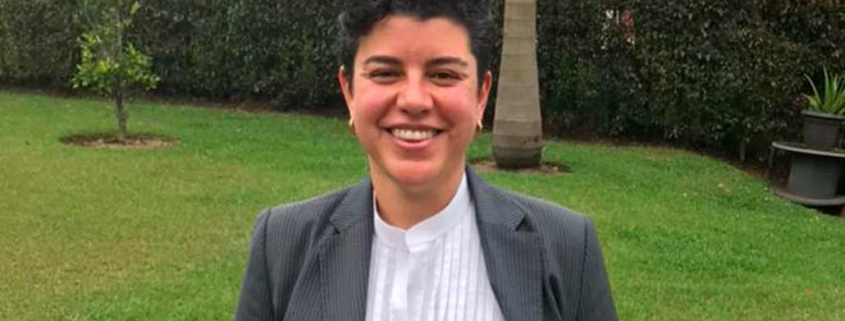María Catalina Prieto Vásquez assumes the executive direction of Filarmed
Prieto, who has just served as deputy director of artistic programming, was appointed by the Filarmed Board of Directors to continue the work that is being carried out.
The musician and master in business administration and cultural institutions, María Catalina Prieto is the new executive director of the Medellín Philharmonic Orchestra, an organization to which she has been linked for four years. The organization's Board of Directors carried out a demanding selection process with important cultural managers in the country and the deputy director of artistic programming was chosen to follow the process of implementing the strategic and artistic plans.
As she begins her duties today, María Catalina has clear various projects that will be the objectives of her administration. “Continue advancing in the direction that we have set out in recent years, under the direction of Ana Cristina Abad, strengthening ourselves artistically and as agents of social transformation,” defines its objective.

Challenges
Orchestra Sustainability
The first, to consolidate the sustainable model of the Orchestra for its permanence over time, which can be replicated among existing orchestras and those that will emerge in the future, thus ensuring the strengthening of a safe and solvent musical movement in Colombia. “We have the responsibility and the potential to turn this model not only into a national reference but also at the Latin American level,” explains María Catalina.
Principal director and headquarters for Filarmed
The selection of the orchestra's chief conductor is already in process. The chosen one, with his baton, will strengthen the artistic quality of the orchestra, and together with the executive direction, he will enhance the educational and social processes. “It is a mission of the Orchestra and its owner to give visibility to national talent through its directors, soloists, and composers,” says María Catalina.
One of its most important challenges will be to complete the process of obtaining a headquarters for musical and administrative work, a historical dream of the organization in which the administration of Ana Cristina Abad put special effort.

Innovation
Design new products that involve other types of disciplines, not only symphonic music. “The orchestras have been working in the same way for many years. If we learned anything from the pandemic, it is to achieve various forms of positioning and captivate new audiences through the optimization of social networks, the creation of digital hybrid products and the implementation of virtual reality.” explains the new executive director.
Training and entrepreneurship
The training line has grown solidly, María Catalina hopes to strengthen musical education in more rural areas and municipalities. Currently, in this program, nearly 10,000 children from various municipalities come into contact with the orchestra each year, and 750 constantly participate in musical initiation programs and orchestral practice, in Santa Fé de Antioquia, San Jerónimo, La Ceja, Apartadó, Turbo, Carepa and Chigorodó.
Another challenge is to promote the line of entrepreneurship to allow Filarmed musicians and recent graduates from the forty-three music faculties in the country to have other work experiences. That is, opening the occupational panorama that exists around symphonic music to develop new skills complementary to their professional practice.
Your profile
María Catalina Prieto is a musician, master in business administration and cultural institutions, specialist in CSR and cultural policies with extensive experience in the symphonic sector and international cooperation. He has worked in different public and private organizations where he has managed to design and implement countless programs and projects aimed at the democratization of symphonic music and musical training in proximity conditions. In recent years it has been dedicated to promoting the transformation of the management model of cultural organizations so that they can be relevant and sustainable over time.
He has worked for more than 15 years in the development of symphonic music and the implementation of a sustainable management model for various public and private organizations such as the Bogotá Philharmonic Orchestra, the United States Embassy and the International Center for Choral Music, among other.
She was recently selected as a fellow of the DeVos Institute of Arts Management (United States), one of the most important programs for executives and managers in the arts sector in the world. Along with five other professionals from the United States, Canada and Singapore, chosen from more than 300 from around the world, you will receive, for three years, mentoring from world leaders in cultural management.





